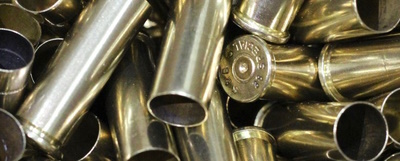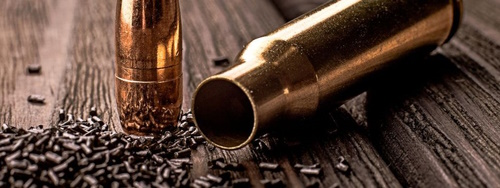
Should You Anneal Brass Before Reloading?
Posted by Bitterroot Brass on 16th Oct 2024
When it comes to reloading brass, annealing is a process that can have a significant impact on the longevity and performance of your ammunition. Annealing involves heating the brass to a specific temperature and then allowing it to cool slowly. This process can help to restore the brass to its original softness and malleability, which can improve its performance and extend its lifespan. But is annealing necessary for all brass, and is it something that every reloader should be doing?
Should You Anneal Brass Before Reloading?
Keep reading to learn more about annealing brass before reloading in this blog.
What is Annealing?
Annealing is a process that involves heating brass to a specific temperature and then allowing it to cool slowly. The process is designed to restore the brass to its original softness and malleability, which can help to improve its performance and extend its lifespan. The exact temperature and duration of the annealing process can vary depending on the specific type of brass and the intended use of the ammunition.
Benefits of Annealing Brass
The following are the main benefits of annealing brass and what you can get out of doing this process regularly.
Extend Your Brass Lifespan
There are several key benefits to annealing brass before reloading. One of the primary benefits is that annealing can help to extend the lifespan of your brass. Over time, brass can become brittle and prone to cracking or splitting, which can cause problems with accuracy and reliability. Annealing can help to restore the brass to its original softness and malleability, which can help to prevent cracking and improve the overall performance of your ammunition.
Improves Accuracy & Consistency
In addition to improving the lifespan of your brass, annealing can also help to improve the accuracy and consistency of your ammunition. When brass becomes brittle or distorted, it can cause variations in the pressure and velocity of the ammunition, which can affect its accuracy and consistency. Annealing can help to restore the brass to its original shape and size, which can help to improve the consistency and accuracy of your ammunition.
Reduces Work During Reloading
Finally, annealing can also help to reduce the amount of work that is required to resize your brass during the reloading process. When brass becomes distorted or brittle, it can be difficult to resize properly, which can lead to problems with accuracy and reliability. Annealing can help to restore the brass to its original shape and size, which can make it easier to resize and reload.
Is Annealing Necessary for Every Reloader?
While annealing can have significant benefits for the lifespan, accuracy, and consistency of your ammunition, it is not necessarily something that every reloader needs to do. Whether or not you should anneal your brass depends on several factors, including the specific type of brass you are using, the intended use of the ammunition, and your personal preferences as a reloader.
Military Surplus Brass Benefits the Most
Some types of brass, such as military surplus brass, may benefit more from annealing than others. Additionally, if you are loading ammunition for precision shooting or long-range shooting, annealing may be more important than if you are loading ammunition for general target shooting or plinking. Finally, whether or not you choose to anneal your brass may simply come down to personal preference as a reloader.
Get Professional Advice
If you are unsure whether or not you should anneal your brass, it's a good idea to do some research and speak with other reloaders to get their opinions and advice. Additionally, you may want to experiment with annealing on a small scale to see if it has any noticeable impact on the performance of your ammunition.
Annealing brass can have significant benefits for the lifespan, accuracy, and consistency of your ammunition. By restoring the brass to its original softness and malleability, annealing can help to prevent cracking, improve accuracy, and make it easier to resize and reload your brass. However, whether or not you should anneal your brass depends on several factors, including the specific type of brass you are using, the intended use of
Bitterroot Brass - Reloading Supplies
Shop at Bitterroot Brass - Your Home for Reloading Supplies



